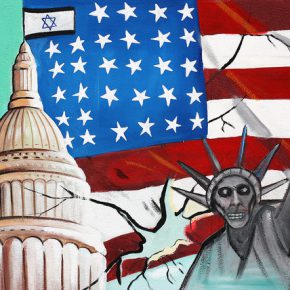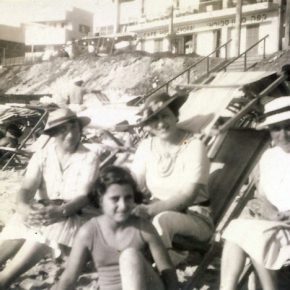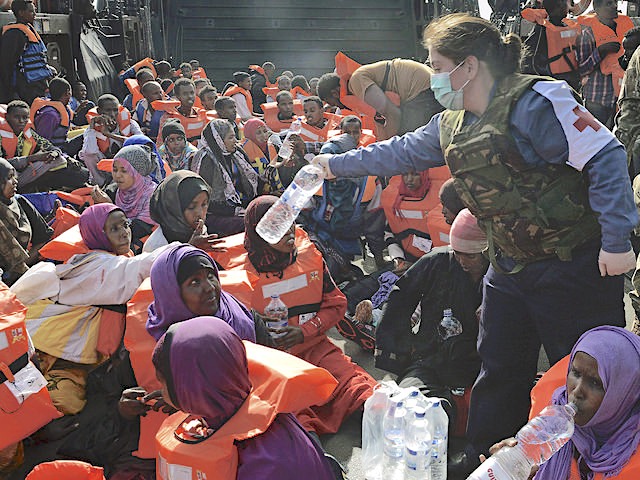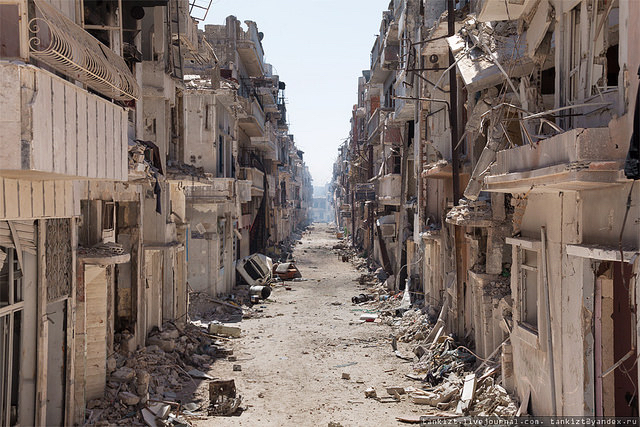As an EU–Turkey agreement on refugees nears collapse, Preethi Nallu and Iason Athanasiadis report from the Greek island of Lesbos on how the deal never fully stopped the deadly voyages and has left survivors of such tragedies in agonizing limbo.
MYTILINI, Greece – The fishing trawler overturned just as it approached the volcanic island’s rocky bay, whose shorelines appear bottomless at night. Ramy Qudmany, a 23-year-old from Syria, heard the panic-stricken shouts of his fellow passengers: “The children are trapped under the boat.”
He swam back toward them, but his heavy clothing slowed him down. As Qudmany grappled under the overturned vessel with one outstretched arm, he felt a little girl’s hand.
Qudmany thinks the girl had probably already stopped breathing by the time he reached her. Yet he continued to swim toward the shore, holding onto a life vest with one arm, and the limp body of the girl with the other, unable to let go.
On July 12, the Syrian asylum seeker was on board one of the few boats still crossing from Izmir on the Turkish coast and the port of Mytilini on the Greek island of Lesbos. He and five others survived. A young family of four – a Syrian man named Fauz, his wife and their children, including the girl – did not.
When the Greek coast guard finally pulled them out of the water six hours later, the doctor on board the rescue mission pronounced the girl dead, with rigor mortis visibly setting in, forcing back her eyelids.
Qudmany and the rest of the survivors are among those who have made the crossing since an EU deal with Turkey came into effect in March. They are also among the asylum seekers who could be returned to Turkey under its terms and conditions.
The deal has slowed the stream of boats across this 6-mile (10km) stretch of the Aegean Sea – known for its menacing tides – to a relative trickle. Yet the crossings never completely stopped. Hundreds continue to arrive every week and people are still dying en route.
Meanwhile, the agreement has left survivors of such tragedies stranded in agonizing limbo. The predictions of critics who warned that the en masse returns under the agreement would be almost impossible to implement are now coming true. With tensions growing between Turkey and Europe, the deal itself is teetering toward collapse.
Fleeing for Life
This year has been the deadliest year in the Mediterranean on record, with 3,740 lives lost at sea. While a majority of the death toll is concentrated farther west, between North Africa and Italy, the number of refugee boats reaching Greece has slowly been rising.
In total, the UN says 18,000 people have arrived in Greece since April and at least 49 have died en route. Meanwhile, smugglers have been finding new pathways to bring people into Greece in recent weeks. Securitization of borders is inadvertently creating new, more treacherous routes.
A combination of factors is pushing people to risk their lives at sea in the hope of reaching Europe. The war in Syria rages on. Despite the deal’s promise of an injection of EU aid, Syrians in Turkey are restricted to “temporary visitor” status, leaving them with few rights or opportunities for employment, education and healthcare.
Meanwhile, Turkey faces turmoil of its own. An attempted coup in July that was followed by a major purge of military officers, judges and academics, and renewed fighting in the country’s Kurdish southeast that displaced 355,000 civilians, make it an increasingly untenable ally for Europe.
![Ramy Qudmany, from Syria, was among the survivors of the boat that capsized, close to the coast of Lesbos, claiming the lives of a young family of four. Haunted by images of the sinking ship, he says he feels trapped by an “unfair” asylum system that is treating refugees of conflict the same as other migrants. [Iason Athanasiadis]](http://souciant.com/wp-content/uploads/2016/11/Ramy.png)
Qudmany and his fellow passengers, including the family who drowned, had already tried to make the journey once before. The group met in Izmir, Turkey, and instinctively formed a circumstantial kinship – a common experience of refugees traversing uncharted territory using smugglers. They decided to pool their savings, and handed them over – twice – to a “captain” who would take them to Europe.
The first time proved futile because the Turkish coast guard, which has been policing the waters with extra vigilance following the deal, turned them back. The second time proved fatal for some and a waking nightmare for the rest.
Sitting at the entrance of Lesbos’ Kara Tepe camp, Qudmany says that distant screams muffled by angry waves have become a background noise that plays in his head in a constant loop.
“When I catch sight of the sea at night, the memories and the voices of those drowning come back to me,” he says.
The Deal
Under the March deal, Turkey agreed to stop boats from leaving its shores in exchange for more than $6 billion in aid to refugees, visa liberalization and renewed talks on EU membership. To deter refugees from attempting the voyage, the EU vowed to return all those arriving in Greece from Turkey after March 20, and to relocate one Syrian refugee directly from Turkey for every Syrian sent back.
The agreement was Europe’s flagship policy for dealing with the surge in migration to the continent last year. European leaders have touted the deal’s success in sharply reducing migrant boats, and proffered it as a model for similar deals with other countries from which large numbers are fleeing, inevitably heading to the EU
That is the view from Brussels. But on the Greek island of Lesbos, residents, aid workers and stranded refugees, who have seen the deal’s failings first hand, are bracing themselves for the consequences of its full collapse.
Like some 61,000 other asylum seekers, Qudmany is now stuck in Greece – among the more than 15,000 on the Greek islands – leaving Greek asylum procedures overwhelmed.
As the EU–Turkey deal was being signed in Brussels, countries along the “Balkan route” to northern Europe, led by Hungary, unilaterally closed their borders. The dominoes collapsed in Greece, the first European country most refugees reach from Turkey.
The legal and logistical challenges of implementing the deal were visible, right from the start. Even with fewer boats arriving, Greece warned that it needed significant European support to shelter and assess the asylum claims and possibly return thousands of asylum seekers already in the country. Yet, a pledge to relocate refugees within Europe has been largely ignored, while efforts to expedite asylum claims in Greece did not materialize.
Meanwhile, the key principle of the deal – the one-in-one-out scheme for Syrians – has never been implemented on any meaningful scale. Only 462 people have been returned from Greece to Turkey, while 511 Syrian refugees have been relocated from Turkey to Europe to date.
The gridlock has severely challenged Greece. Poor coordination between UN agencies, the Greek government and EU asylum agencies has led to chaotic dispersal of services to refugees. Official reception and processing centers – which detain asylum seekers – are full beyond capacity, while UN estimates show that many of the new temporary centers and transit sites, which allow people to come and go, are operating under capacity – with close to 20,000 empty spaces.
Many asylum seekers fear being trapped in camps, concerned that they may be converted into closed detention centers, as happened when Greece detained all migrants and refugees entering the islands before reversing the policy due to international criticism. Some have sought shelter on the streets, especially in cities such as Athens and Thessaloniki.
Tensions inside the camps are escalating, including recent clashes and arson in Moria camp, a closed center on Lesbos. So more people are opting for informal housing across the country – squats and private homes – and irregular means, via smugglers, to move on to northern Europe.
The Moroccan Survivor
Mohammad Zaki Jouiet, a 20-year-old from Morocco who survived the same shipwreck, shares a room with Qudmany.
It was easy to find him in Kara Tepe – Syrian residents guided us to the only Moroccan man at the camp that day. Underneath an olive tree with a substantial trunk, he fiddled with a pack of cigarettes, while his lunch package – fruit, a small carton of juice and few vegetables and bread – sat unconsumed in front of him.
![Mohammad Jouiet, from Morocco, sits in front of his assigned unit in Kara Tepe transit camp on Lesbos island, where he will remain until his asylum application is heard or he is deported under the terms of the E.U.–Turkey deal. The details of the process remain unclear and the legal conditions of return murky. [Iason Athanasiadis]](http://souciant.com/wp-content/uploads/2016/11/ramy.png)
“I swam for 3km [1.9 miles] and then laid on my back, shivering, until they came to rescue me,” explains Jouiet, his face straining into frequent smiles that fail to mask the sadness in his eyes.
Unlike Qudmany, who fled Syria for his life, Jouiet is considering returning home. After many idle days, and no news of an asylum interview, it has dawned on him that as a migrant from a non-conflict country, he may be invisible in the asylum system.
‘Open Prison’
Qudmany and Jouiet have been staying in one of the open migrant holding centers, Kara Tepe. A newer “hotspot,” or reception center, along the Lesbos coast facing Turkey, it is home mostly to Syrians and Afghans, as well as Iraqis and a handful of people from North African countries.
In contrast to some other camps in Greece, the approximately 700 residents of Kara Tepe live in hygienic conditions with “better shelter” housing units developed by the IKEA Foundation for UNHCR. With insulation from heat and cold, windows for ventilation and lockable doors for privacy and security, they are a marked improvement on the traditional canvas tents seen in most of the Middle East.
But these improvements are little consolation for the stranded asylum seekers, whose futures hang in the precarious balance of the EU–Turkey deal.
Most at this camp, especially those who arrived after March 20, when the deal came into effect, are waiting for an asylum process without a time frame. Qudmany says he is frustrated to see the same policies being applied to refugees fleeing conflict and others pursuing work or a better quality of life or those who were simply manipulated by smugglers.
With no clear way forward, he says the Kara Tepe camp has become an open prison to him.
Watching and Waiting
The deal brought a somber calm to the island, but its residents, volunteers and aid workers are keenly aware that they will bear the brunt of its collapse.
In Skala Sikamineas, a bay on the northernmost part of the island, Enrico Tormen, a volunteer from Italy, scans the shore for migrant boats. Tormen coordinates the work of an emergency response team at Lighthouse Relief Hellas, a one-year-old nonprofit started by a small group of Swedes.
Last year, refugees scrambled to the shore of this bay nearly every day. While those frantic scenes may have subsided, there has been a steady uptick in arrivals to the island in recent weeks. Although current numbers are a fraction of last year, volunteer rescuers consider it a worrying sign, given the stringent patrols on both sides of the crossing.
The approaching weather will make the crossings even more dangerous. Every winter, the Sirocco, a Mediterranean wind from the Sahara, gathers a hurricane-like speed as it heads toward southern Europe, extending its reach from Portugal to the western Turkish coast, forming dust clouds that penetrate every object in their way. Soon, the winds from Egypt will start making the currents of the eastern Mediterranean angrier and the waves less forgiving of its travelers.
Tucked away from the menacing tides and just 3 nautical miles from Turkey, Skala Sikamineas has offered a safe haven for travelers over countless seasons, with migrants sailing toward its shore since Byzantine times. Yet last season was unrivaled in the island’s recent history – more than 221,000 people arrived in Greece via the Mediterranean in October 2015 alone.
![Lighthouse Relief Hellas, a Greek NGO set up by Swedish nationals last year, is run by international volunteers from across the globe, who help with the emergency response when refugees arrive in Lesbos. [Iason Athanasiadis]](http://souciant.com/wp-content/uploads/2016/11/lifehousehellas.jpg)
Behind them is their base of operations, with spartan facilities but all the necessary equipment to conduct small-scale rescues.
“We help with the arriving refugees, but also with recycling the rubber dinghies and cleaning up the beaches, partly to maintain a positive relationship with the locals,” Tormen explains.
He is optimistic that most volunteer groups who were in Lesbos last year will return to the island if refugees begin sailing again in escalating numbers.
‘Tragedies for Several Books’
Should the route revive, Mustafa Dawa fears that his job on Lesbos will again become a 24/7 operation.
Dawa is the caretaker of the only burial site for Muslim refugees on the island. Originally from Egypt, he has lived in Greece for many years and has made Lesbos his home since 2014. A student of Greek literature, he first came to the island to work as an Arabic-Greek translator for NGOs but became disappointed by their “profiteering” approach and remains skeptical of many groups purporting to help refugees.
![Mustafa Dawa has been working as an undertaker in Lesbos, burying the dead bodies of Muslim refugees who perished at sea. [Iason Athanasiadis]](http://souciant.com/wp-content/uploads/2016/11/Mustafa-Graveyard.jpg)
“There are enough tragedies in this cemetery to write several books,” he says. “There are entire families that died together.”
Dawa fears that the rows of marble tombstones that surround him, most of them missing names let alone epitaphs, could soon multiply.
Fears of Collapse
Now, seven months of impasse over relocating or returning new arrivals is taking its toll.
If the current dynamics continue, they suggest a grim outcome. “Greece will need to enforce en-masse long-term detention to make the agreement viable,” says analyst Apostolis Fotiadis, who has been following European migration policies for the past decade.
There have been many critics of the agreement, and even the deal’s original champions have voiced concerns. Gerald Knaus, one of the leading architects of the deal and director of the European Stability Initiative, warned last month that Greek islanders worry that Lesbos and Chios are becoming the “Nauru Island for Europe,” referring to the Asia Pacific Island where Australia outsources detention centers for asylum seekers trying to reach its territory.
“The agreement may be about to collapse because of inadequate implementation and lack of the right focus, with highly detrimental consequences for Greece, the Balkans, the EU as a whole and the UN refugee convention,” he warns.
In the absence of much progress on returns and relocation, Greece recently announced that many of the asylum seekers on the islands would be transferred to the mainland to ease pressure on places such as Lesbos and Chios.
Knaus fears that this move could precipitate the death of the agreement. If it becomes increasingly clear to refugees in Turkey that they will not be sent back, more boats will likely begin to arrive, with smugglers lowering their prices to drive up demand and finding new routes into Greece and to northern Europe. Unsurprisingly, many asylum seekers we met mentioned plans to have smugglers take them through the forested borders of Bulgaria or to follow the route from the Greek port of Patras to Italy.
Meanwhile, Amnesty International said this week that Greece had sent Syrians back to Turkey without giving them a chance to claim asylum, in violation of international law.
No Plan B
![Volunteers belonging to the Light House Relief NGO transport a rubber dinghy, from which a group of arrivals was rescued, to shore. They provide both emergency response for arrivals and recycling services and clean-ups of the local beaches. [Iason Athanasiadis]](http://souciant.com/wp-content/uploads/2016/11/volunteers.png)
Fotiadis’ suggested solution is for Greece to propose its own version of a common European Asylum system – including expediting asylum procedures and sharing the cost of resettling refugees between European countries – which he contrasts with the EU’s current approach dominated by “deterrence and containment.” Such a proposal would counter the weaknesses that Europe’s far-right movements and the “European security-industrial complex” are exploiting, he says.
Yet, European countries’ overlapping political apathy toward resettlement means Greece will have a hard time convincing member states to sign up to a long-term collective system. Some critics see Europe’s poor implementation of policies – including the slow pace of a plan to distribute 160,000 asylum seekers across the 28 member states – as a strategy to dissuade new arrivals, or as part of a “designed dysfunction.”
The Greek residents of Lesbos have no illusions about who will pick up the pieces should the deal fall apart.
A short walk from the Lighthouse’s rescue mission, the owner of the area’s most popular taverna has had a rough season. Last year, sunbathers lined up on the beaches formed a morbid contrast to the drenched refugees tiredly wading in their direction. This year the coast was largely empty of both tourists and refugees.
“This is not theater for us, this has been a reality for the past decade,” the taverna owner said, with a sardonic smile. “The journalists and NGOs come and go. We stay.”
While the EU–Turkey deal hangs in the balance, the around-the-clock patrols for distressed boats, the reception of new arrivals, the salvaging of dinghy remnants, the burying of the dead and the counting of those who survived have become a repeating cycle.
While the pace is slower than before, and the flashing cameras and scurrying reporters have gone, the residents of Lesbos and a handful of volunteer groups remain committed to the task at hand. They do the work, not for recognition, but simply because if they did not do it, “no one else would.”
This article originally appeared on Refugees Deeply, and you can find the original here. For important news about displacement and forced migration, you can sign up to the Refugees Deeply email list.





